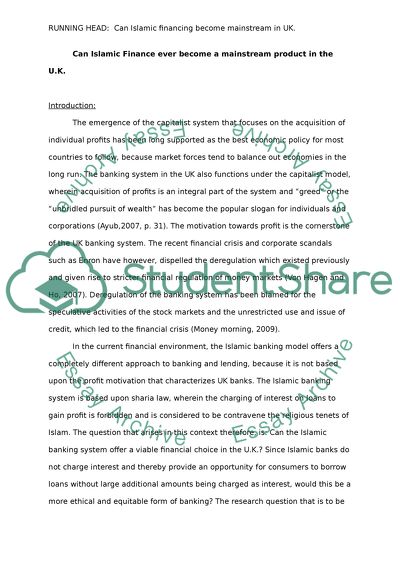Cite this document
(Can Islamic Financial Products Be Applied as Main Products in the UK Term Paper, n.d.)
Can Islamic Financial Products Be Applied as Main Products in the UK Term Paper. Retrieved from https://studentshare.org/finance-accounting/2035644-can-islamic-financial-products-be-applied-as-main-products-in-the-uk
Can Islamic Financial Products Be Applied as Main Products in the UK Term Paper. Retrieved from https://studentshare.org/finance-accounting/2035644-can-islamic-financial-products-be-applied-as-main-products-in-the-uk
(Can Islamic Financial Products Be Applied As Main Products in the UK Term Paper)
Can Islamic Financial Products Be Applied As Main Products in the UK Term Paper. https://studentshare.org/finance-accounting/2035644-can-islamic-financial-products-be-applied-as-main-products-in-the-uk.
Can Islamic Financial Products Be Applied As Main Products in the UK Term Paper. https://studentshare.org/finance-accounting/2035644-can-islamic-financial-products-be-applied-as-main-products-in-the-uk.
“Can Islamic Financial Products Be Applied As Main Products in the UK Term Paper”, n.d. https://studentshare.org/finance-accounting/2035644-can-islamic-financial-products-be-applied-as-main-products-in-the-uk.


